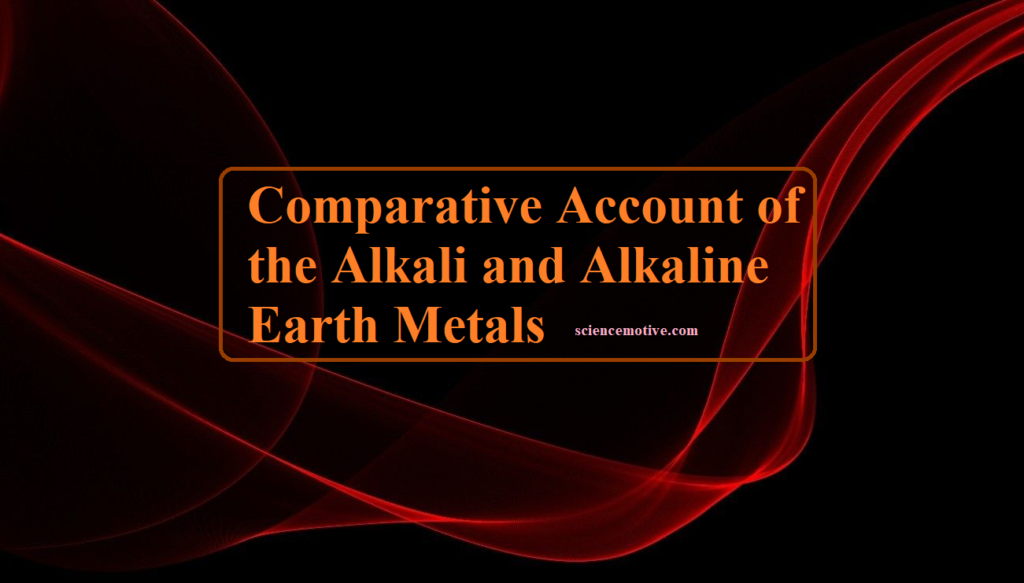Comparative Account of the Alkali and Alkaline Earth Metals
Que. Present a comparative account of the alkali and alkaline earth metals with respect to the following characteristics:
(i) Tendency to form ionic/ covalent compounds
(ii) Nature of oxides and their solubility in water
(iii) Formation of oxo-salts
(iv) Solubility of oxo-salts
(v) Thermal stability of oxo-salts
Ans. Following is the comparative results of alkali and alkaline earth metals for various properties mentioned in the question
(i) Tendency to form ionic/covalent compounds :
(a) All common compounds of alkali metals are generally ionic in nature. Halides and oxides are ionic in nature with exception of lithium compounds which are generally covalent in nature.
(b) Alkaline earth metals form ionic oxides and halides except Be which forms covalent compounds.
(ii) Nature of oxides and their solubility in water:
(a) Alkali metals form oxides, peroxides and superoxides.
These oxides are basic in nature and basic character increases down the group. Oxides dissolve in water to give hydroxides. These hydroxides are strong bases.
(b) Alkaline earth metal oxides are basic in nature but less basic than alkali metal oxides. BeO is amphoteric while other oxides are basic and form sparingly soluble hydroxides.
(iii) Formation of oxo-salts:
(a) Alkali metals form sulphates, carbonates and bicarbonates.
(b) Alkaline earth metals form sulphates, carbonates and nitrates.
(iv) Solubility of oxo-salts:
(a) Alkali metal oxo-salts are generally soluble in water. Solubility increases down the group.
(b) Carbonates and sulphates of alkaline earth metals become insoluble as we move down the group.
(v) Thermal stability of oxo-salts:
(a) Alkali metal oxo-salts are thermally stable and stability increases down the group. Li2CO3 and Li2SO4 decompose on heating.
(b) Alkaline earth metals carbonates decompose on heating while their thermal stability increases down the group.
Comparative Account of the Alkali and Alkaline Earth Metals
JEE NEET Chemistry Question Bank On Thermodynamics



